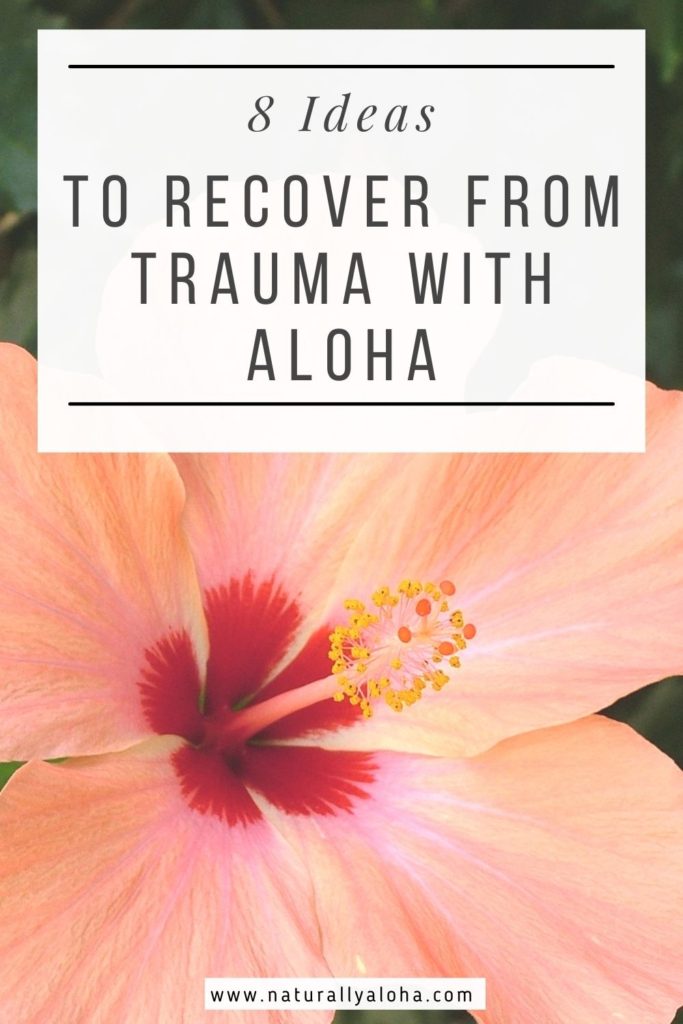
Trauma. It happens to all of us. Though it may come in different shapes and sizes, its effects can linger long past the event itself. Abuse, accident, death, grief, and mental illness are a few of the big examples of trauma, but even other things like slamming the brakes, being yelled at, or a consistent, negative event can cause trauma.
I grew up in Hawaii, but that didn’t mean my life was perfect. Hawaii is where most of my trauma occurred, from dealing with a narcissistic, abusive family member and poverty to building houses as an adolescent and surviving periods of hunger. My body and mind changed a lot from these events, and I initially used creativity and numbness as ways to survive the after-effects of the trauma. Years later, I’ve found better ways to overcome and heal.
While our initial reactions to trauma vary, all of us eventually find ways to cope with the after effects of trauma, from exercising to therapy and much more. When we choose healthy ways to cope and deal with our trauma, cumulatively, they will help us heal. That is the hopeful thing: though it may take time to heal from trauma, every effort we put into our healing can help us feel better, more confident, and develop methods that work specifically for us. We can each learn valuable lessons from trauma that helps us move forward with grace and aloha.
I don’t have all the answers, but from my own personal journey, I’ve discovered some ways to heal and ho’omau, endure and keep moving forward, despite the hard things I’ve gone through.
This article explores 8 methods that have worked for me in recovering from trauma. But it doesn’t even being to explore all the ways we can overcome it. In fact, entire books have been dedicated to the very topic of trauma, so this article barely skims the surface. Healing comes in different ways, so the ideas that have worked for me not might work for you. And that’s absolutely ok! 🙂
Heal with Aloha
However, if there’s one thing I want my readers to get out of this is that healing from trauma, abuse, or other tragic events should always be done with aloha.
I frequently talk about coming “from a place of love.” We should always give ourselves the same aloha that we so willingly offer others. This aloha includes honoring and respecting our bodies, minds, time, and space. In whatever trauma recovery method you participate in, make sure it comes from a place of aloha. Ask yourself if it’s what you truly need and want, and if it honors you and your unique way of healing.
The following list covers ideas that I hope will help you on your healing journey but please come from a place of love as you choose which to implement (or not). 💙
Trauma recovery obligatory disclosure
I am not a medical or mental health professional. I’m just sharing what has worked for me, so please do any of these exercises or activities at your discretion and know that I won’t be held liable if anything bad happens. I hate putting this part in my articles but I have to, so there it is. Ok, let’s continue!
Overcome the numbness
Trauma creates this feeling of numbness. For me that numbness lasted a few months. It was the only way I could survive at the time, so please don’t judge yourself if you “can’t feel anything.” This is your body’s natural reaction to an unnatural event. The body is overloaded with emotions, and doesn’t know what to do except numb. Some people even make this numbing worse by resorting to drugs and/or alcohol. But we shouldn’t try to further the numbness.
The key is to awaken from the numbness. As much as we don’t want to feel the pain of all the emotions, we should let our bodies process through. Some people do this by talking with others through therapy or even with a trusted family member or friend. I process through my emotions by exercising, journaling, and spending quiet time alone. Recently I’ve joined a TRE class and that has worked phenomenally for me too. As humans we want to avoid pain as much as possible, which is why we numb. But when we become numb, we are keeping our bodies and minds from healing. Staying present and feeling through the pain is one of the greatest things we can do to work through trauma.
There is beauty in pain, and as difficult as that concept seems, I can see so clearly how my trauma has molded me into who I am today. We’ve all heard that our challenges don’t define us, but they can refine us. This is exactly the case with the feelings of numbness. Recognize numbness as a natural reaction then allow ourselves to feel the emotions. When we allow ourselves to feel, we help ourselves process and move forward on our healing journey.
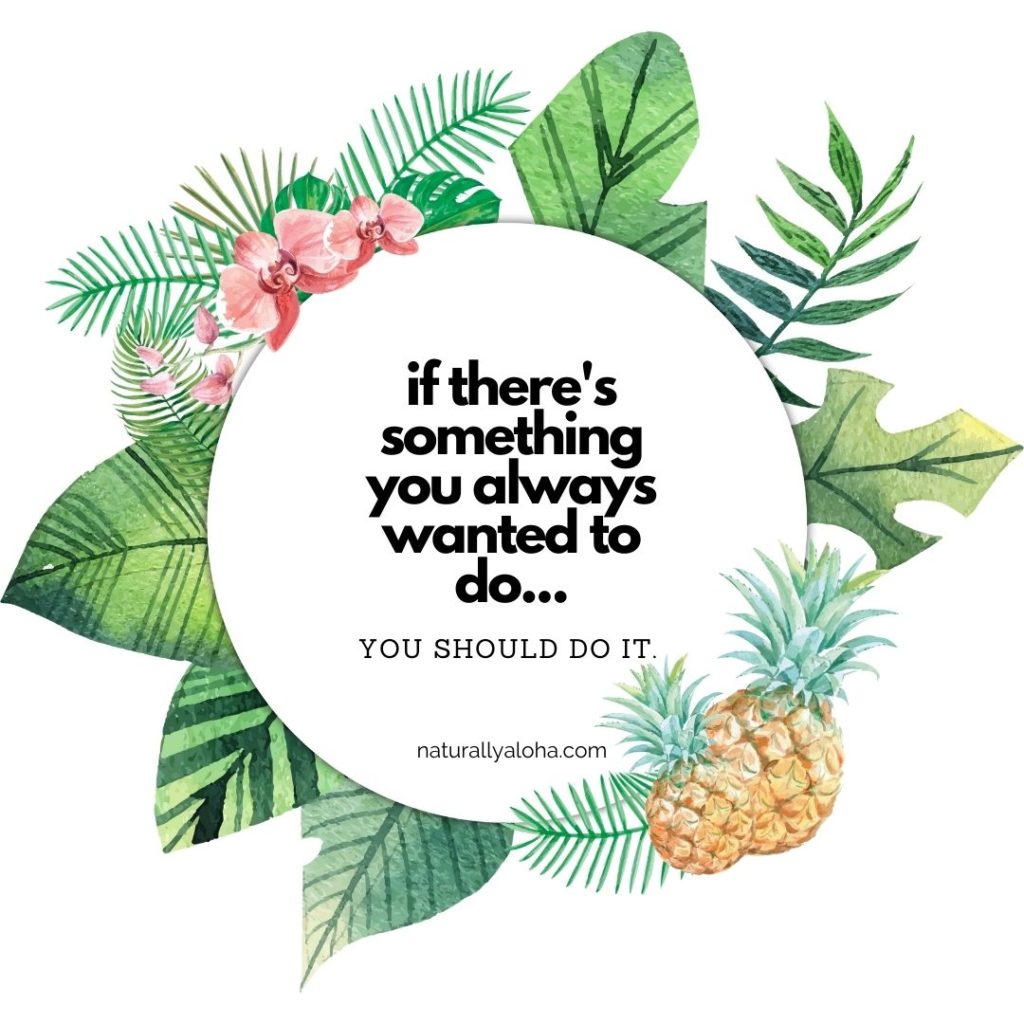
Do what brings joy
Stop doing stuff you don’t want to do. It’s simpler than it sounds because it requires us to truly listen to ourselves. Pa’a ka waha is the Hawaiian value meaning to “close the mouth.” And that could include the chatter in our heads. Take time to be still, listen to God, listen to you, and truly ask yourself: What brings me joy? And continue forward in that direction.
For me, creating, writing, and a clean, quiet space bring me joy. I don’t like to be in crowded places (it’s quite overstimulating) or with people I feel obligated to hang out with. So I’m making efforts to stop doing those things I don’t really want to do. We can all do better at this, as our natural tendency is to want to help, serve, and, sometimes, even please others.
But coming from a place of love, we honor our time, space, and energy. Laulima means “many hands” so remember that you don’t have to do everything for everyone. There are many hands to help out and contribute, so do what would honor you and those around you.
Forgive
Huikala and ho’oponopono are two Hawaiian values that mean forgiveness and making things right. Forgiveness brings freedom. I know it’s hard to let go of the hurt that people have caused you, especially when you were completely innocent.
Huikala. Let it go. As a Christian, I believe Christ can help ease our burdens. Even the very thought of reaching to him can bring warmth, relief, and love to help us forgive others. ☀️
Find your people. Appreciate and serve them.
Let go of relationships not serving you. People come and go in seasons of our lives, so it’s ok if you don’t keep in contact with each one at every moment of every day. This is a huge reason I left social media (Facebook, specifically). I didn’t need to stay in contact with every single person I met through my entire life. I truly appreciated them when we lived in the same location or attended the same local church.
But I don’t need to know every detail of their lives. In fact, I can list the 5-6 people in my current circle of friends right now—my people, who love, support, and cheer me on. They know what’s going on in my life and I know what’s going on in theirs. Some of them are friends from the past and we have one anothers’ emails and phone numbers, and some of them are people in my current life like church friends, neighbors, family, and more. These are my people.
With trauma, we are overloaded… with emotions, information, and copious amounts of stress. We don’t need more stress by over-connecting with others.
Find your people—your people, your tribe, the ones who know, love, and truly care about you. And be ok letting the others go. I’m not saying to “unfriend” them or be unkind, but be ok not getting together all the time, interacting with all their posts, or answering every call. Again, we must show aloha towards ourselves and honor that we are healing. We can’t keep overloading ourselves, and your people will honor and respect that too.
Appreciate and serve your people as well. It will bring a deep joy and satisfaction to your life to support your loved ones.
Pono – Live balanced
Pono is the Hawaiian value meaning “correct, righteousness,” and “balance.” Live balanced. Work to maintain good health in every aspect: physically, emotionally, mentally, and spiritually. There’s not much to say about this except that being healthy helps with confidence, releases endorphins, and boosts motivation.
Embrace the inner child
I’ve heard the term “inner child” tossed around here and there, and I’ve kind of come to love and define it in a way that makes sense for me. Have you ever imagined or visualized yourself going through trauma? Whenever I think of the things I’ve gone through and see myself in those situations, I just want to give my younger self a big hug. She was scared, exhausted, and dying inside, when she really just wanted to feel safe, protected, and loved.
To me, those inner voices pleading for help are the inner child. The inner child is the one who needed a hug, the one who so desperately needed words of validation, the one who craved to be creative yet held back because of the unkind words of others.
When the traumatic event is behind us, can we embrace the inner child? To me, this is showing ourselves aloha. We’re giving ourselves the love, validation, forgiveness, kindness, safety, and protection we so desperately needed as we went through traumatic events.
For me this also looks like embracing who I truly am: a creative, a writer, an artist, and so much more. My younger self deeply wanted to be all these things, but trauma held me back. Now, I’m embracing that, and it’s given me a huge sense of freedom and joy.
We can all embrace who we’re truly meant to be and that can bring so much satisfaction and motivation in life. Creativity also gives us a zest for life. Here is one of my favorite speeches about finding joy in life and pertains to healing/loving ourselves: Finding Joy in Life
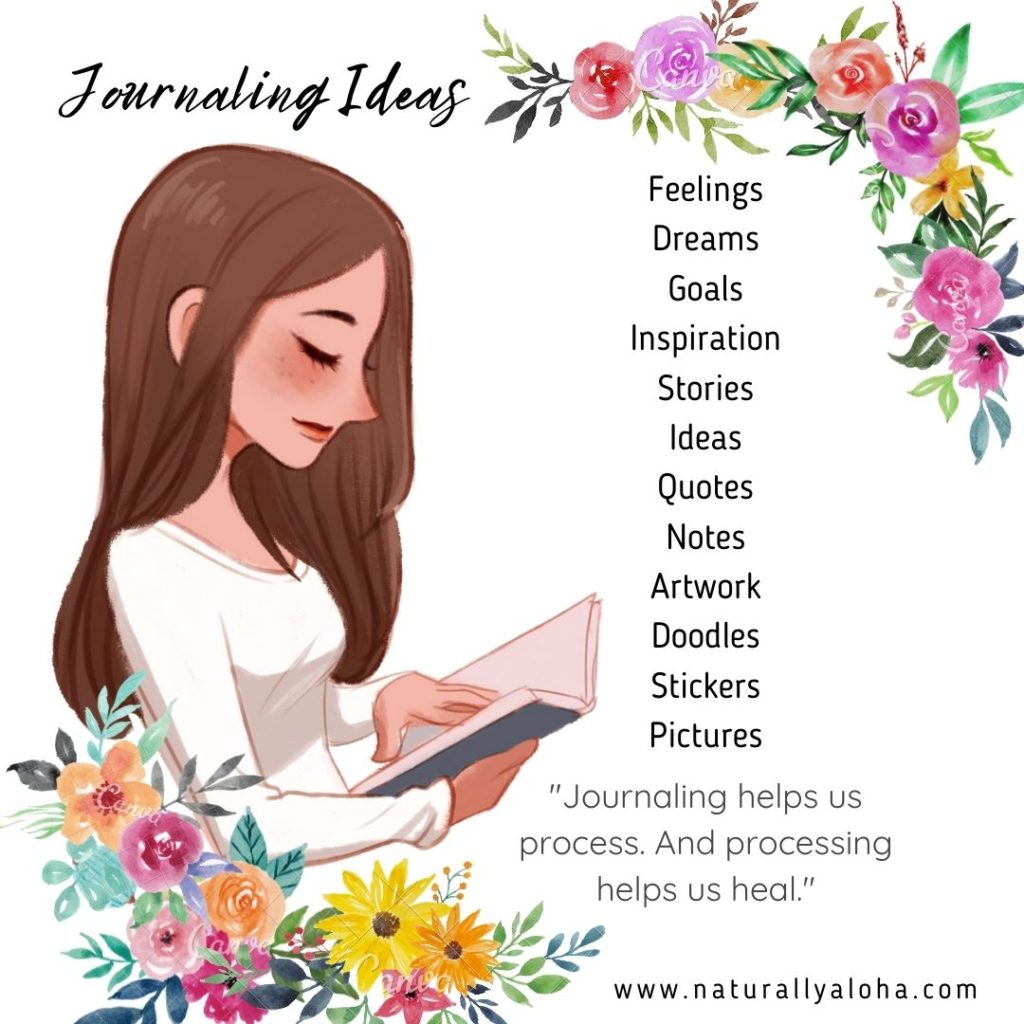
Journal
This is self explanatory, but I know that journaling doesn’t come naturally for some people. A person who goes through a traumatic event might ask, What is there to write about? There’s pretty much anything and everything you could ever want to write about in a journal: feelings, dreams, goals, inspiration, stories, ideas, quotes, and so forth. Your journal is what you want it to be. I like to write about the ups and downs in my life, and the lessons I learn from them, as it helps me process, forgive, and move forward with aloha. Honestly, write whatever you want but know that writing helps us process, and processing helps us heal.

Find your calm
I’ve recently discovered two things that help me calm down and de-stress after traumatic events: exercising and/or reading a book. My brain, on overload, wants to blow up. Exercising helps me shake out the adrenaline. Reading a book helps me calm down. It took me too many years to discover this about myself, so maybe you can shorten that process by finding what works for you. It could be exercising, cooking, eating, walking, listening to music, going to a specific place, etc. Find your calm, the activities that help ground and bring you back to the present.
Reach out to God
With trauma, a person can go one of two ways in their religious activities. One person might devote more time to God, while another steps away. Again, please recognize that these are natural reactions to trauma. With the overload, we might think, “If I’m more spiritual, I’ll feel better” or “I just can’t handle anything right now.” And that’s OK. Just as we shouldn’t judge ourselves for numbing after traumatic events, we shouldn’t judge ourselves for going one way or another with religion and spirituality.
The key, however, is reaching out to God. I know it’s hard. A lot of people say, “I am a good person, so why did this happen to me?” and they don’t want to reach out to God. That’s also a natural reaction, so withhold judgment there. I don’t know all the answers, but I do know trauma has refined me in such a way that I’m stronger, more resilient, and compassionate. I would never wish my trauma on anyone else, but I know that those who have suffered similar and survived understand the molding and growth that the trauma put them through. And when it sometimes felt like God was quiet, I now understand that I probably needed to go through that so I could have more empathy and compassion for others.
Reaching out to God, even in prayer, is never a waste. We might not get the answers we want right away, but we can show him our faith, and that will always yield blessings.
Conclusion
Trauma is a part of life. We can’t avoid it, but we can purposefully do things to help us heal and ho’omau through our journey. There’s a scripture I found recently that I really like. It says to “have mercy… deal justly, judge righteously, and do good” (Alma 41:14). Everything about this is aloha. Have mercy with yourself as you heal. Deal justly with how you treat yourself, judge righteously instead of shaming yourself for natural reactions, and keep doing good. Do good to others, and do good to yourself.
This is a hard but beautiful journey. This is beauty in the pain, light in the darkness, and life from the ashes. Live aloha and ho’omau. You got this.
Sending aloha and good vibes,
Lei
Trauma recovery additional resources
Healing the Tragic Scars of Abuse: One of my favorite speeches that really hits home. He is so compassionate in this speech and his faith inspires me to have more faith.
The Infinite Power of Hope: I think a lot of healing comes from having hope: the hope of feeling better, the hope that things get better, the hope that life will turn out the way it should, etc. This speech is heartwarming, easy to relate with, and full of hope!
The Revolutionary Trauma Release Process by David Bercelli: I am currently taking a TRE class and enjoying it thoroughly. The concept of “shaking it off” might seem too weird for some people so do what works for you. Everything about this course makes sense and works for me and if you decide to try it out, I recommend going to a class first. It’s helpful to have an instructor keep an eye on and help you get the exercises and tremoring down before doing it on your own. Since I heal and cope well with exercise, it makes sense to let my body heal through shaking off trauma. The body is incredibly smart!
5 Hawaiian Days to Wellness email course. This is one of my free mini courses that can be delivered straight to your inbox! 🙂
Let’s hear from you!
What are your thoughts on trauma recovery? Is there a method or idea that has worked for you that I haven’t listed here? Or have you tried any of the ideas in this list? Let us know in the comments below. Mahalo for your help!
Pin this for later

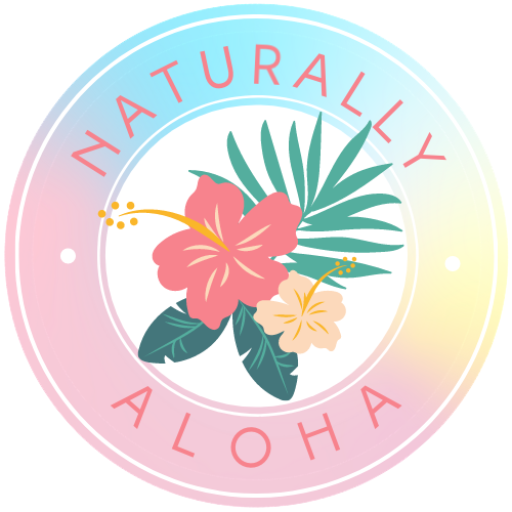

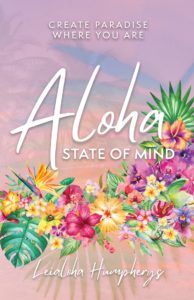
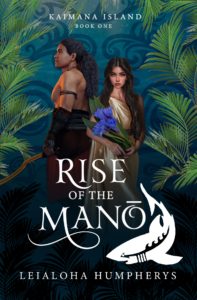

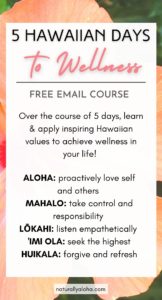
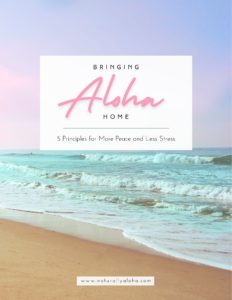
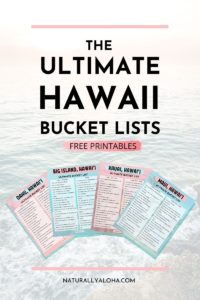
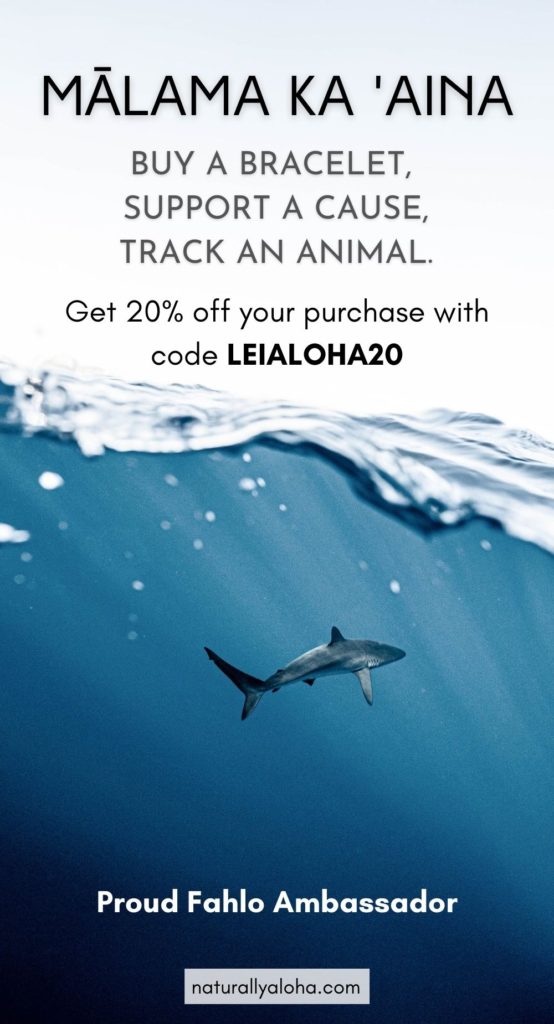
my favorite step wa sEmbracing the Iinner Child. my life changed dramatically at the age of 14 and by 16 I lost my grandmother and subsequently my dad to alcoholism.And my mom decided to just look away. So I had no real support system to help me handle the situation. i have learned that I need to heal that girl that never had a chance to be young and happy. I went through 2 years of talk therapy for trauma. But prayer and my relationship to God was my greatest healer. thank you for your blog. Aloha Peace
Aloha Dona, 🌺
Mahalo for your thoughtful comment. 💙 I’m so sad to hear about all the loss in your life, as well as the lack of support throughout your adolescent and teenage years. My heart aches for you, but I am equally as happy to hear that you’ve found healing methods that work for you: talk therapy, prayer, strengthening your relationship with God, and embracing the inner child. Sometimes I wish I could go back and give my little self a hug, but I can do that now through the way I live my life, and I know you are too. Keep it up my friend. 🙂
✨ Sending aloha and hugs,
Lei